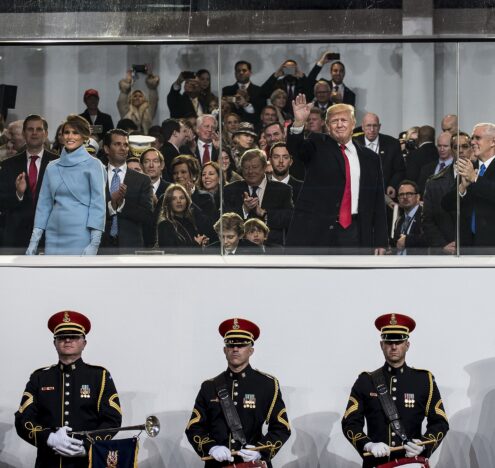This analysis was featured in Critical State, a weekly newsletter from Inkstick Media and The World. Subscribe here.
When President Vladimir Putin announced the invasion of Ukraine in February 2022, he did so by receding tropes that would be common across a Fox News broadcast or in the pages of the New York Post. His speech devoted a whole paragraph to the West’s assault on traditional values, saying, “they … force on us their false values that would erode us, our people from within, the attitudes they have been aggressively imposing on their countries, attitudes that are directly leading to degradation and degeneration, because they are contrary to human nature.”
There is no definition of global elite that does not meaningfully include Putin, but the familiar language of reaction he employed is part of a transnational strategy by conservatives — and those opposed to gender and reproductive freedoms. Thanks to the work of diligent reactionaries, there is a regressive international working to force people to live under an explicitly patriarchal order, one that punishes reproductive choice and gender expression.
One major breakthrough of the WCF has been finding a common language for authoritarian leaders peripheral to the West and reactionary populists.
In “Transcalar Activism Contesting the Liberal International Order: The Case of the World Congress of Families,” authors Sara Kalm and Anna Meeuwisse examine how one specific international organization was able to make the language of reaction transcend borders, despite so much of reactionary thought being linked to narrow expressions of local rule.
“Backlash politics in the gender field is now a broad political program, fought for by activists in many different countries,” write the authors. “On the anti-gender (or ‘pro-family’; we use the terms interchangeably) agenda are issues such as banning abortion and surrogacy, prohibiting sexual education in schools, stopping legislation on domestic violence, complicating divorce procedures, and disallowing sex change as well as same-sex marriage.”
To explore the shaping and sharing of this reactionary agenda, the authors focus on the World Congress of Families (WCF), which was founded in 1997, with both Americans and Russians having early prominent roles in creating and shaping the organization.
The WCF is at the center of global networking and unites different kinds of actors across most regions of the globe. These actors include evangelical, Catholic, and Orthodox civil society organizations, the Holy See, religious leaders, scholars, aristocrats, and politicians, such as high-level ministers in countries like Hungary, Italy, and Brazil.
One major breakthrough of the WCF has been finding a common language for authoritarian leaders peripheral to the West, like former President Jair Bolsonaro of Brazil or President Viktor Orban in Hungary, as well as reactionary populists of western nations, like Italian leaders of the Lega Nord. In this, both groups share a framing that places reactionary politics as one that protects the natural family without having to confront different regional variations on family.
“The discourse on the natural family fits very well with the nationalist and ethnocentrist worldview of the right-wing populists who currently enjoy great success in many corners of the globe. The most obvious reason for this is the notion of a global left-liberal elite that tries to implement a radical agenda that is alien to the interests of the ‘common man/woman,’” write the authors.



















